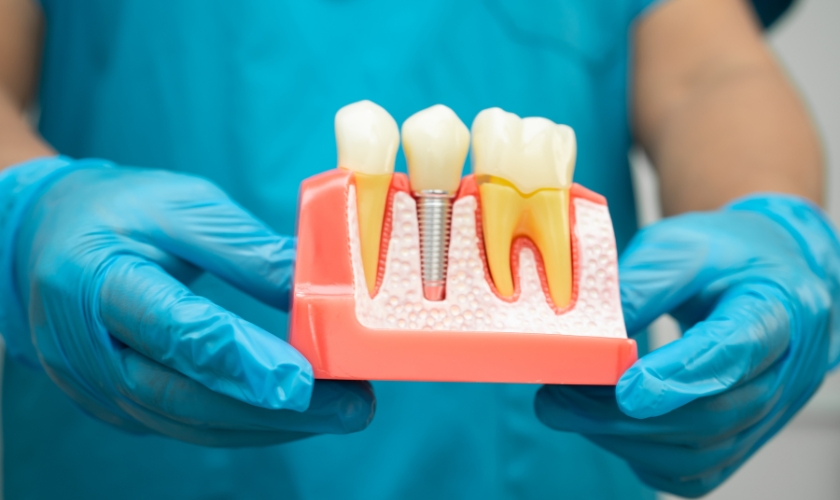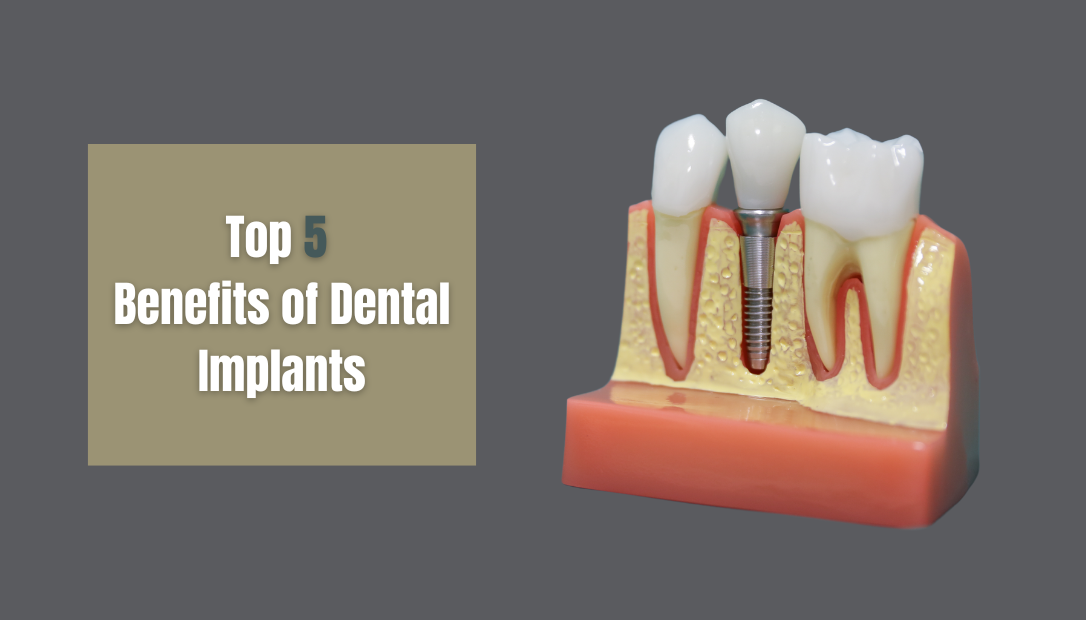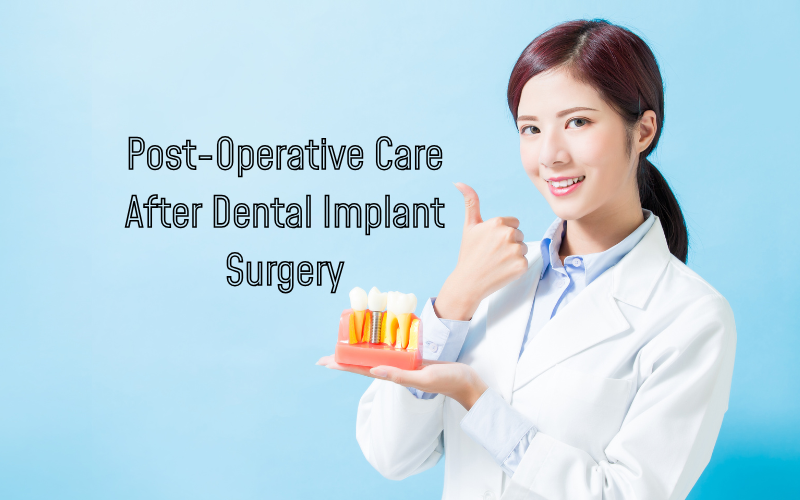
Dental implants transform smiles. However, results depend entirely on proper aftercare. Healing requires commitment. Neglecting care can lead to pain, infection, or implant loss. Patients do not realize how the habits of daily life affect recovery. Proper aftercare secures your investment and promotes oral well-being in the long term.
This guide simplifies it: expectation of recovery, daily hygiene, lifestyle changes, and warning signs. With the right approach, implants are the test of decades, giving patients confidence, firm chewing, and healthier smiles.
What to Expect After Dental Implant Surgery
Mild discomfort, swelling, and minor bleeding are typically the result of implants after surgery. These are temporary effects. Osseointegration takes months to perform, with healing developing normally in two weeks.
Some patients mistake normal soreness for complications, and excessive anxiety ensues. Complications will be indicated by pain that persists, bleeding continuing over a period of time, or swelling becoming worse.
Understanding differences between normal recovery and complications prevents panic. Correct healing is all about knowing patterns and making it to your dentist if the symptoms worsen.
Early Aftercare in the First 24-48 Hours
Dental implants need careful watch in the initial two days. Rest is important. Patients need to avoid heavy exercise or weight lifting. Ice packs reduce swelling if applied in short intervals.
Dentists may give medication that you have to follow closely. Sleep with your head elevated to reduce bleeding. Keep fingers and tongue away from surgery sites. These precautions reduce risks and enable proper healing. Proper early care enables dental implants in Arcadia to settle well.
Eating and Drinking Advice
Implants that heal quickly on soft high-caloric food during immediate rehabilitation. Think yogurt, oatmeal, and smoothies. Avoid anything hot, spicy, sticky, or crunchy to avoid causing irritation to areas where surgery has taken place.
Hydrated tissues have better blood flow and speed the recovery. Do not drink with a straw, as it can dislodge blood clots. Room temperature water is still the better option. Eating will be streamlined to prevent infections and not put too much pressure on the titanium screws while you heal.
Oral Hygiene after Dental Implants
From the beginning, dental implants must be cleaned sensitively. A soft toothbrush around the surgical site is advised. Stay away from the electrics until your dentist gives the nod. Floss as healing progresses. Floss picks or interdental brushes are good for protection.
Antibacterial mouthwashes help control bacteria, though you want to stay away from the alcohol-based ones. Heed professional advice on frequency. Good oral hygiene guards against peri-implantitis and promotes the stability of implants. That’s what keeps implants stable and working.
Lifestyle Habits That Affect Healing
Smoking is a threat to implants when used in combination. Nicotine prevents blood flow and slows down healing. Alcohol inflames tissues and slows down healing. Balanced diets with proteins, minerals, and vitamins increase bone anchoring.
Stress increases grinding risks, which puts pressure on the implants. Mouthguards can be prescribed if grinding occurs at night. Healthy habits protect implants and increase overall healing outcomes.
Long-Term Care for Dental Implants
Dental implants in Arcadia excel with lifelong maintenance. Brush twice a day to keep gums and implants healthy. Flossing daily prevents accumulation. Semiannual professional cleanings allow for early complication detection.
Dentists track bone status and gum attachment. Mouthguards minimize risks due to sports or nighttime grinding. Good habits make implants last decades. Each day’s discipline guards both appearance and function.
Red Flags- When to Call Your Dentist
Dental implants can sometimes present with warning signals. Pain recurring indicates infection or failure of integration. Swelling that grows is an urgent evaluation necessity. Post-initial healing bleeding should never be ignored. Loose implants or crowns indicate problems that require urgent remedy.
Infection signs include pus, severe pain, or fever. Inform your dentist right away if you have these problems. Delay results in implant failure and compromises your health.
Dental implants are successful when patients observe appropriate aftercare. Each step is crucial, from oral hygiene to diet. Disregard for recovery instructions jeopardizes implant failure and further treatment. Success over the long term demands discipline and professional assistance.
Have faith in your dentist when consulting about questions. Schedule your follow-up appointment with us today and enjoy long-term confidence with your investment.




